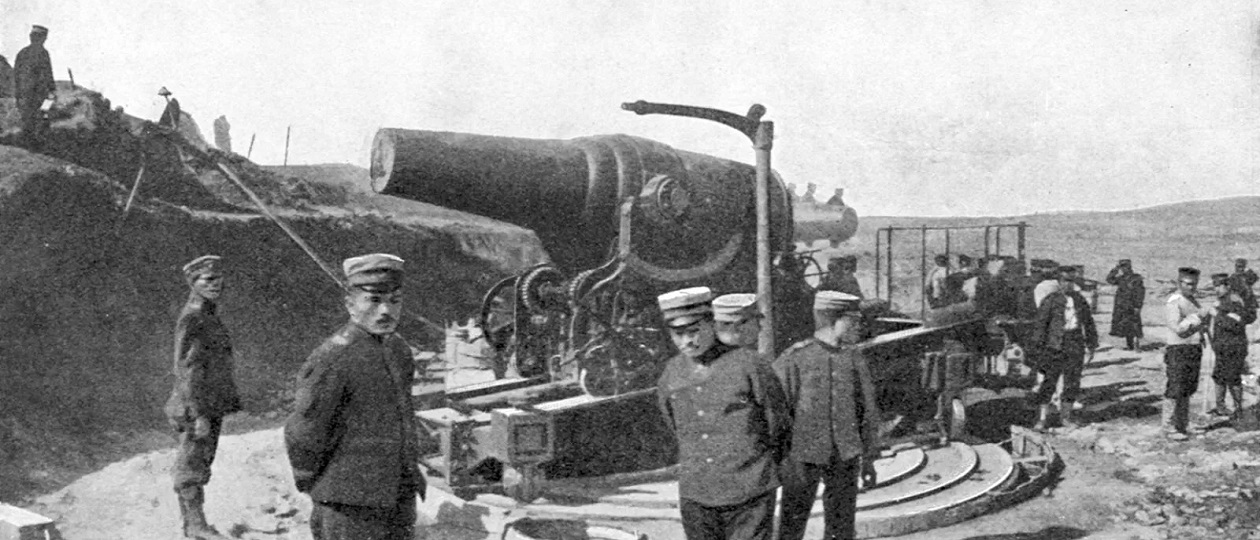
In the Russo-Japanese War that began 120 years ago, Russia suffered defeat which was also caused by its inability to wage properly what we now call information wars.
St. Petersburg-based contemporary weekly magazine “Chronicles of the War With Japan” published an article headlined “Japanese Propaganda In Europe”, noting that propaganda of Japanese and Japanophile ideas was arranged in Europe on a large scale. Japan spread a network of secret agents throughout Europe who established excellent relationship with local media and stopped at nothing. Coupled with strictest censorship, it meant that all news items reaching Europe were one sided and favored the Mikado government while “Russian official representatives abroad were inactive.”
As soon as the Russo-Japanese War started, Tokyo sent its envoys to the United States and Great Britain. Their main task was to create an image of Japan as a reliable partner of Anglo-Saxons and their diligent student, forced to repel the “Russian bear.” In Washington, this mission was carried out by former Japanese Minister of Justice Kentaro Kaneko (25 years before he had graduated from Harvard University, where he became friends with the future US President Theodore Roosevelt). And in London Japan was represented by a graduate of Cambridge University, former Minister of Internal Affairs Suematsu Kencho, who was instructed to “manipulate British newspapers.”
Both coped with their mission superbly. They easily integrated the American and British high societies and used every opportunity to grant interviews, launch press events, make speeches to businessmen, officials and university audiences. Demonstrating excellent knowledge of the Anglo-Saxon mentality, Kaneko and Suematsu portrayed Japan as a peace-loving state whose soldiers and officers defended the civilized world from barbaric Russia. Six weeks after the start of the Russo-Japanese War, the American Puck magazine published a cartoon with Modern Japan, radiating justice, progressiveness, humaneness, enlightenment, freedom of religion, tolerance, and whipping a Cossack who subjugated defenseless people.
In another report “Chronicles of the War With Japan” said: “Influenced by the press, English society arranged a ceremonial farewell party for Japanese officers before their departure, praying for Japanese victories.”
In his own “Russo-Japanese Propaganda Confrontation in the Far East in 1904-1905” essay Dmitry Pavlov, doctor of historical sciences, wrote: “From the very beginning of the armed conflict with Russia, Japanese propaganda, hand in hand with its British brethren, launched an offensive on a broad front. Japanese propaganda portrayed Russia as a ‘great enemy of humanity and true civilization’, as a direct threat to the territorial integrity of China, the independence of Korea, and the existence of the Japanese state. This was coupled with tacit subsidization of ‘independent’ Far Eastern press, and ample usage of aggressive anti-Russian agitation. The annual budget of its central propaganda apparatus, according to Russian estimates, was several times greater than the Japanese General Staff’s expenditures on undermining its enemy by secret financial support to Russia’s revolutionary parties and preparations of an armed uprising in Russia.” Pavlov continued: “The Times provided such ardent support to Japan that many blamed this newspaper of being the original culprit of the war.”
Kaneko spoke more than a hundred times in various US audiences. In April 1905 in his most famous speech in Boston he emphasized: “In this struggle with Russia, peace in Asia is at stake. If Russia wins, the light of religion and freedom in this part of the world will go out forever. If Japan loses, there will be no future for Christianity and civilization in the East.” Kaneko’s speech brought the Boston audience to ecstasy and was met with standing ovation. It was printed in thousands of copies and widely distributed among American intellectuals.
Kaneko also had direct access to Theodore Roosevelt and took full advantage of it. Upon his arrival in the United States, he was honored with a meeting at the White House, where he offered his former classmate a copy of “Bushido” that greatly impressed the American president. From then on, Kaneko received valuable first-hand information and equally valuable advice — for example, to grab Sakhalin from Russia. In his letters to “dear Kaneko”, finalized with the Japanese word “banzai’, Roosevelt thanked him for Japanese newspapers that Tokyo’s envoy provided on a regular basis. And in a message to his own compatriots, the US President said: “The Japanese are neither Aryans nor Christians, but they are not under the same despotism as the Russians. Those who share our beliefs would feel much happier in Japan rather than in Russia.”
Meanwhile Russia’s Prince Esper Esperovich Ukhtomsky, sent to the United States with letters of recommendation from the Russian government, failed to get any invitations for dinners in New York, Washington, Philadelphia, or Chicago. As a result, he and his party had to go back to Russia “with their tails between their legs,” as Kaneko reported to Tokyo gleefully.
Arthur Pavlovich Cassini, Russia’s ambassador in Washington, did not fare well either. Unlike Kaneko, who behaved with impeccable politeness, Cassini constantly gave vent to his feelings and more than once forced the US Secretary of State John Hay to show him the door. Kaneko wrote: “Cassini’s presence in the United States is to Japan’s advantage, and I only hope that the Russian ambassador will stay here as long as possible.”
All that Cassini achieved was Roosevelt’s order to American officials and Army and Navy officers to observe strict neutrality. It didn’t apply to US media, though. In “Chronicles of the War With Japan” one could read: “While the US government declared its neutrality, the American press openly expressed its sympathy for Japan and demanded that government measures should be taken to secure for Japan the fruits of her victories and to neutralize the results of her defeat by the Russians.”
Here is another excerpt from the above-mentioned article by D.Pavlov: “The American people believed that Japan was waging war in self-defense, and its courageous resistance to mighty Russia evoked great admiration. America’s financial and academic circles were convinced, too, that Japan’s military successes meant the progress of civilization. The American press hailed Japan as the ideal of a young nation fighting for an altruistic cause. The core of such an attitude towards Japan by Western society was aphoristically expressed by William Greener, war correspondent of The Times: “The Japanese are pagans. However, they adopted the Western system of moral values (ethical code).”
As a result, none of the great powers officially supported Russia’s accusations of its adversary’s treachery and violation of international law when Japan started the war without its official declaration.
Moreover, copying their Japanese colleagues, leading American and British legal scholars argued that Japan acted lawfully by attacking Russia without declaring war. Yale Law School professor Theodore Woosley, for example, stated that “in modern times it is not necessary to declare war.” Therefore “there was nothing treacherous or wrong in Japanese destroyers attacking Russian ships in Port Arthur harbor.”
On June 22, 1941, Hitler’s Germany attacked the USSR in exactly the same way, without declaring war. And 6 months later, Woosley’s hypocrisy would come back to haunt his compatriots in Pearl Harbor.






